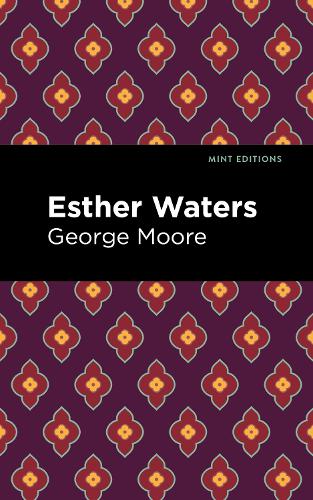
Esther Waters
(Hardback)
Available Formats
Publishing Details
Esther Waters
By (Author) George Moore
Contributions by Mint Editions
West Margin Press
West Margin Press
24th May 2022
United States
Classifications
General
Fiction
Classic fiction: literary and general
823.8
Physical Properties
Hardback
338
Width 127mm, Height 203mm
Description
Esther Waters (1894) is a novel by George Moore. Considered his best novel, it was an immediate critical and commercial success, and has since been adapted several times for theater, film, and television. Like much of Moores work, Esther Waters shows the influence of French naturalist writer mile Zola, who sought to portray the influence of heredity and social environment on the lives of characters without shying away from poverty, sex, disease, and suffering. Following her fathers death and her mothers marriage to an abusive Londoner, Esther Waters arrives at the home of the Barfield family in Shoreham to work as a kitchen maid. There, she tries to work hard to support herself, but is soon seduced by a footman named William Latch. When he elopes with his employers niece, Esther is left to hide her pregnancy for as long as possible. Discovered, she is dismissed, and soon thereafter gives birth to a healthy boy. Unmarried and poor, she makes the decision to raise Jackie as a single mother while seeking employment in London. Tragic and truthful, Esther Waters is the story of a woman who defies Victorian convention and suffers for nothing more than being born into poverty. With a beautifully designed cover and professionally typeset manuscript, this edition of George Moores Esther Waters is a classic of Irish literature reimagined for modern readers.
Author Bio
George Moore (1852-1933) was an Irish poet, novelist, memoirist, and critic. Born into a prominent Roman Catholic family near Lough Carra, County Mayo, he was raised at his ancestral home of Moore Hall. His father was an Independent MP for Mayo, a founder of the Catholic Defence Association, and a landlord with an estate surpassing fifty square kilometers. As a young man, Moore spent much of his time reading and exploring the outdoors with his brother and friends, including the young Oscar Wilde. In 1867, after several years of poor performance at St. Marys College, a boarding school near Birmingham, Moore was expelled and sent home. Following his fathers death in 1870, Moore moved to Paris to study painting but struggled to find a teacher who would accept him. He met such artists as Pissarro, Degas, Renoir, Monet, Mallarm, and Zola, the latter of whom would form an indelible influence on Moores adoption of literary naturalism. After publishing The Flowers of Passion (1877) and Pagan Poems (1881), poetry collections influenced by French symbolism, Moore turned to realism with his debut novel A Modern Lover (1883). As one of the first English language authors to write in the new French style, which openly embraced such subjects as prostitution, lesbianism, and infidelity, Moore attracted controversy from librarians, publishers, and politicians alike. As realism became mainstream, Moore was recognized as a pioneering modernist in England and Ireland, where he returned in 1901. Thereafter, he became an important figure in the Irish Literary Revival alongside such colleagues and collaborators as Edward Martyn, Lady Gregory, and W. B. Yeats.
